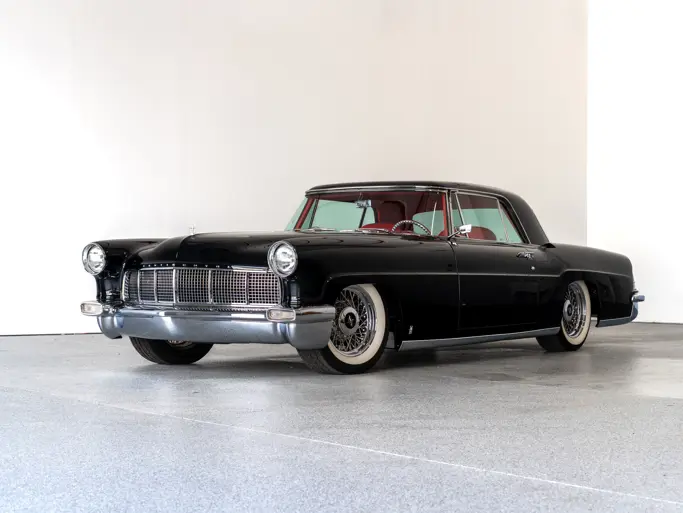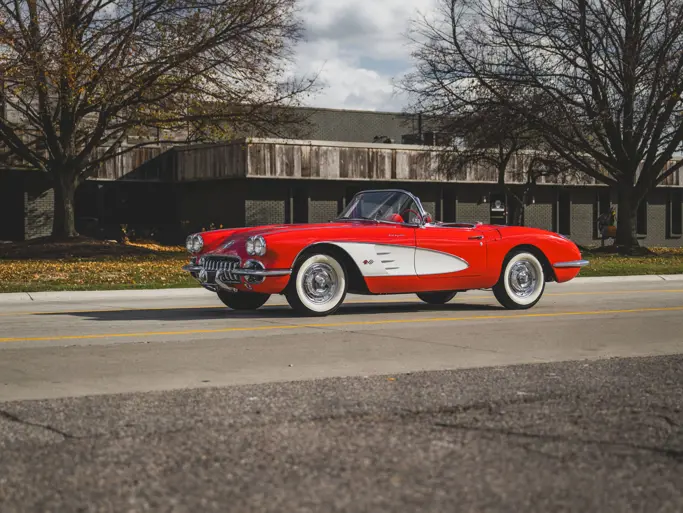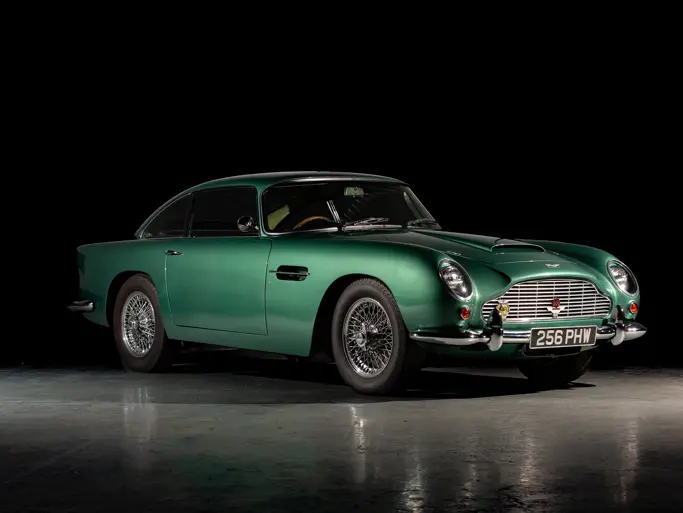When BMW undertook the manufacturing of Renzo Rivolta’s Isetta in 1955, the firm incorporated some changes. The drivetrain was redesigned to use their 247 cubic centimeter four-cycle motorcycle engine. The gearbox output was coupled to a shaft through a rubber universal joint, which led, through another rubber joint, to the chain case. Inside were double drive chains running in oil to the solid rear axle. This arrangement made the whole power unit much quieter and reduced vibration. In fact, so much of the car was re-engineered that no earlier Iso parts were used, nor were they interchangeable. The front suspension was also reconfigured to a swing arm arrangement. Changes to the body included raising the headlights above the fenders so that they attached directly to the body.
As with this car, in 1956 the engine displacement was increased to 297 cubic centimeters and compression was raised to achieve 13 horsepower. Although top speed did not increase from 53-mph, there was a marked increase in much-welcome torque, which helped on hills. More than 161,000 Isettas were built through 1962, along with some 34,000 BMW 600s, an elongated, four-passenger version with a flat-twin engine and a conventional rear axle.
This rare example of a surviving European bubble window Isetta has the highly desirable “Z mold trim” and two-tone paint. It is the recipient of an excellent restoration and is very attractive in red and white; it has primarily red tartan upholstery and a black fabric sunroof. Very well detailed with front vent windows, dual mirrors, luggage rack and whitewall tires, it is an excellent example of the popular European microcar.

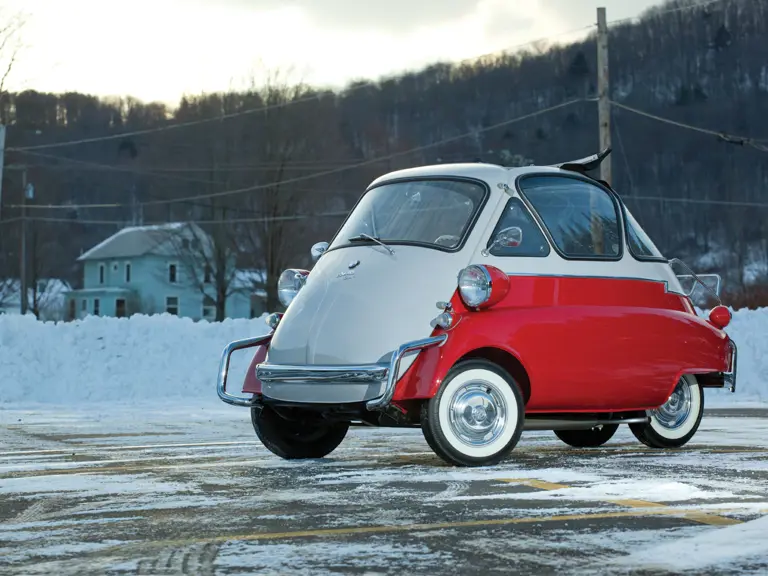
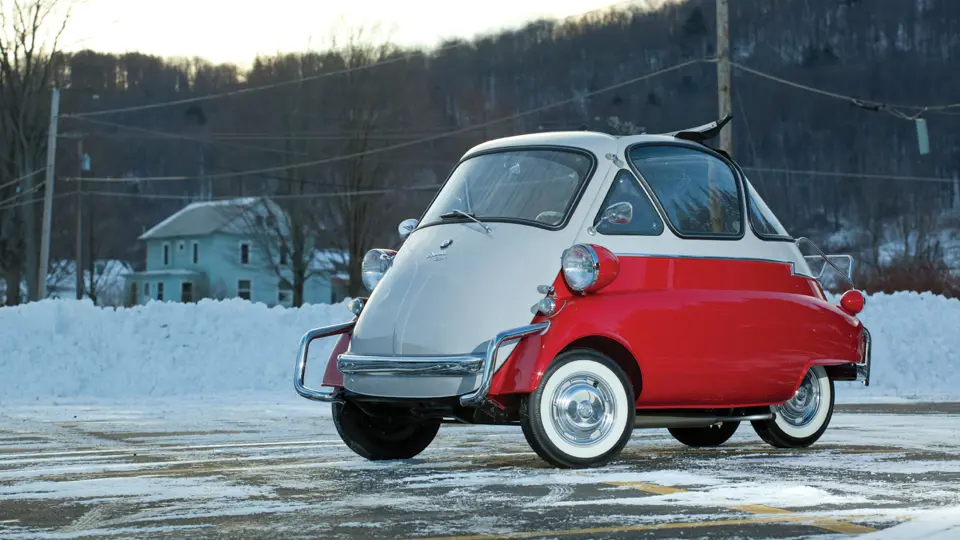
 | Fort Lauderdale, Florida
| Fort Lauderdale, Florida
